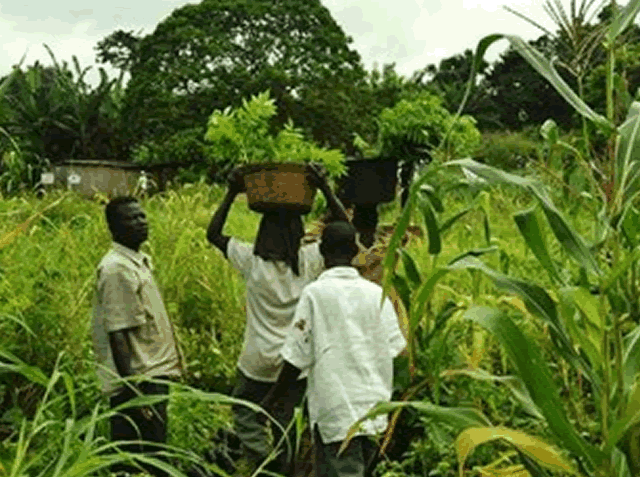African governments urged to attract youth into agriculture
 African governments and other stakeholders have been urged to encourage the youth to embrace agriculture and to let them understand that they could make money from the sector and its value-chains.
African governments and other stakeholders have been urged to encourage the youth to embrace agriculture and to let them understand that they could make money from the sector and its value-chains.
Mr Bukar Tijani, FAO Assistant Director General and Regional Representative for Africa, who made the call, said there was also the need to support the youth to engage massively in agriculture and agri-business through right policy environments, access to skills, innovations and right technologies.
“We must address the challenges that disenfranchise the African youth from agriculture such as low productivity, hardship, low levels of mechanisation and modernisation, lack of rural infrastructure and insufficient local processing and value addition,” he said.
Mr Tijani, who was speaking at the launch of the FAO special programme for “Youth Employment: enabling decent agriculture and agri-business jobs” in Accra, underscored the need for motivation through linkages to financial services that did not require collateral the youth cannot provide, rural infrastructure services to facilitate market linkages and enterprise development and partnership.
The workshop attracted youth representatives from government, private sector, and civil society from a number of African countries.
Africa has a population of almost 200 million people from 15 to 24 years, which represents the youth at large untapped reservoir for the growth of the agri-food sector.
Mr Tijani said the youth needed practical business model on selected value chains, with examples of budgeted business plan with cost-benefit analysis, and evidence based advocacy.
He said the youth as drivers of change in their communities, organisations and countries knew what they wanted to contribute to and benefit from the agricultural sector.
“Youth can be powerful drivers of change to lift themselves and others out of poverty, hunger and malnutrition.”
Mr Tijani called for support to the youth in agriculture and value chains to be tailored on the needs and priorities of different youth groups such as the low skilled commercially oriented youth and tertiary educated youth.
The “Youth Empowerment: enabling decent agriculture and agri-business job” programme will support the region in harnessing its huge demographic dividend, while contributing to rejuvenation of the ageing farming population.
Beyond farm jobs, the programme will also explore the potential for job creation and rural non-farming economic activities and in food value chains, agri-business development and their related support services.
It will also support the implementation of declarations that will emanate from the 2017 AU year of “Harnessing demographic Dividend through investments in Youth’ as they relate to empowering youth in agriculture and agricultural value chains.
Currently, FAO is implementing more than 10 projects focused on youth employment in the Africa Region.
However, most of them are relatively small to medium size technical co-operation projects that are contributing to solve specific technical issues or supporting the development of a particular policy instrument.
Dr Alex Ariho, the Chief Executive Officer, African Agribusiness Incubators Network, said investing in the future of the youth and encouraging them to grow their own businesses was key in dealing with the unemployment situation on the continent.
He said the youth needed access to technology and innovation as well as motivation from successful start-ups.
Michael Opeyemi Ige, Executive Director, CAYF, said youth unemployment was a ticking bomb and that there was the need for governments in Africa to make agriculture more appealing to the youth.
“We must restructure and rebrand agriculture in ways that will make it enticing for the youth,” he said.
Mr Klutse Kudomor, National Co-ordinator of the national Youth in Agriculture Programme, Ministry of Food and Agriculture, said there were many investment opportunities in the agricultural value chain that government was keen on supporting the youth to undertake.
“It is in this direction that the government has launched various agriculture initiatives with incentive schemes to ensure that the youth are gainfully employed,” he said.
Ms Unami Mpofu, Senior Programme Officer, NEPAD called for collaboration from stakeholders to address the challenges and to ensure that goals and objectives of the African Agenda 2063 were achieved.
Source: GNA
